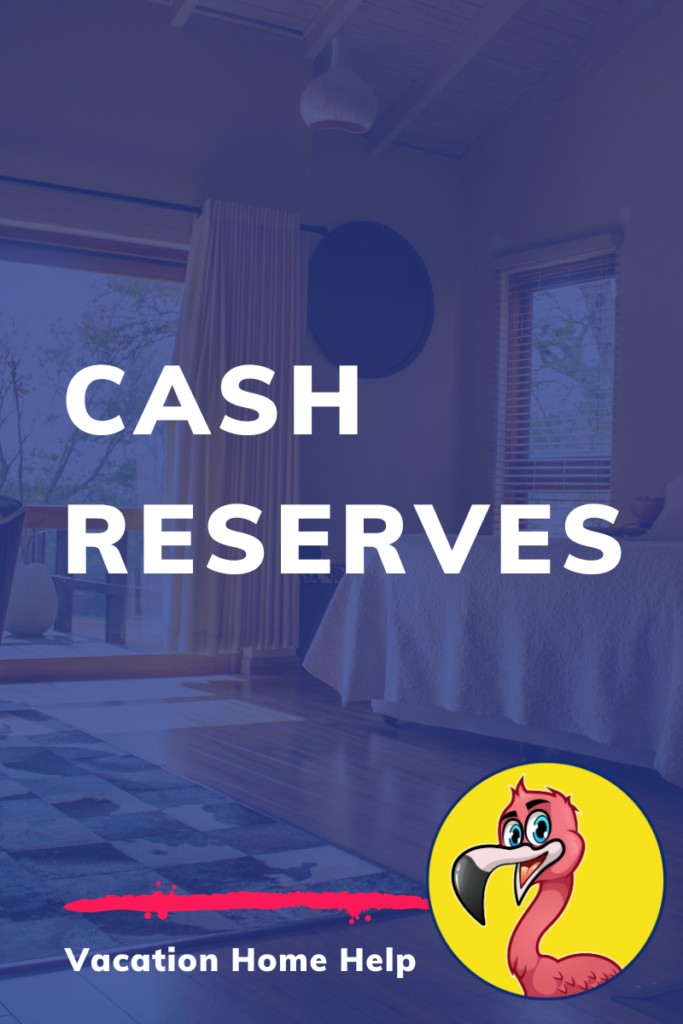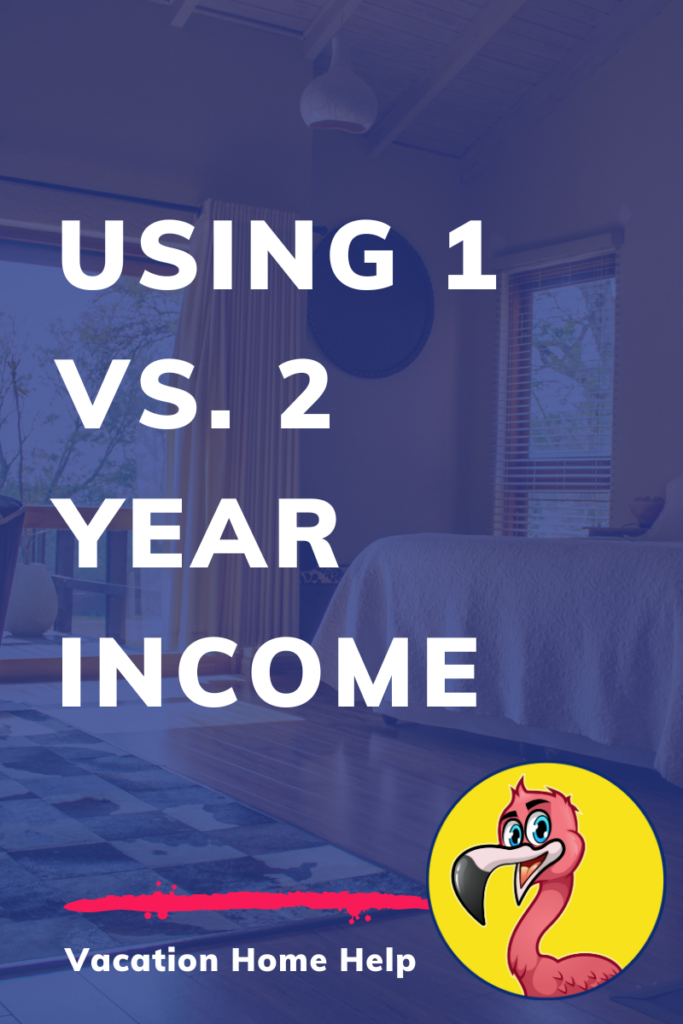Short Term Rental Lenders: Navigating Airbnb Financing
Looking for short term rental lenders is time consuming, but it does not have to be. Investing in short-term rental properties can be a lucrative venture, providing a steady stream of income for investors. The potential for profitability in this market is evident, as evidenced by recent data from Airbnb. In the first half of 2022 alone, Airbnb hosts globally raked in an astounding $21 billion in earnings. Yes, you read that correctly – that’s an incredible figure for just six months!
One of the key factors contributing to the attractiveness of short-term rentals is the consistent demand they enjoy. It’s no wonder that aspiring investors often find themselves pondering the same question: How can I finance my short-term rental property?
Fortunately, this article is here to guide you through the airbnb financing process while offering expert insights and options tailored specifically for short-term rental (STR) properties. After all, becoming an Airbnb host comes with a multitude of expenses that need to be carefully considered.
Whether you are a first-time investor venturing into the realm of short-term rentals or an experienced investor looking to expand your portfolio with a second property, there are various avenues available to finance your venture. Are you eager to delve deeper into this topic? Well, you’re in luck! Keep reading to discover more about the exciting world of airbnb financing options and unlock valuable knowledge to propel your investment journey.
Estimated reading time: 14 minutes
Table of contents
What is Short Term Rental Financing? Unlocking Opportunities for Airbnb / Vacation Rental Investors
Are you an aspiring property investor with dreams of venturing into the lucrative world of short-term rentals? If so, you’re probably wondering how to secure the necessary funds to turn your investment dreams into a reality. Well, fear not! Short-term rental financing is here to save the day and help you navigate the financial aspect of your venture. Let’s dive into this exciting realm and explore the various financing options available to propel your investment journey.
Pro tip: A quality realtor will already have financing referrals in place. If your realtor or broker is not knowledgeable about financing, it may be best to hire a knowledgeable professional. Many brokers say they can provide you financing options with DSCR programs, but don’t actually look at the deal as a short-term rental.
Short Term Rental Lender Number 1, Hard Money Loans
One popular avenue for short-term rental financing is through private loans, often facilitated by hard money lenders. These lenders offer flexible guidelines, making it easier for investors to secure the funds they need. However, it’s important to note that these loans typically come with higher interest rates compared to other financing options in the market. Moreover, hard money lenders typically offer shorter payment terms, usually ranging from one to three years. Notable players in this field include reputable names like Kiavi and RCN Capital, who have established themselves as top-notch hard money lenders trusted by many investors.

Conventional Bank Loans: Harnessing the Power of Stability and Low Rates
For property investors with a stable high income that can comfortably support new mortgage payments, conventional bank loans offer an attractive financing option. These loans come with the lowest interest rates in the market, making them highly desirable for those seeking affordable financing solutions. However, it’s worth mentioning that conventional bank loans are similar to mortgages for primary properties, which means they may not be the best fit if you have aspirations of purchasing multiple short-term rental properties. Nonetheless, if you meet the income requirements and seek a reliable and cost-effective financing solution, conventional bank loans could be your ticket to success.
Commercial Rental-Specific Loans: Unleashing the Power of Projections
Another intriguing option to consider is commercial rental-specific loans, commonly known as Debt Service Coverage Ratio (DSCR) loans. This type of financing hinges on your property’s projected income, allowing lenders to assess the viability of your investment. By evaluating your property’s potential income, lenders determine the loan amount and terms that align with the projected revenue. It’s a financing avenue that takes into account the unique nature of short-term rentals, giving you the opportunity to secure funds based on the income potential of your property.
The Importance of Cash Reserves: Avoiding Costly Mistakes

Now, let’s take a moment to discuss a vital aspect often overlooked by investors in the short-term rental market – the importance of having sufficient cash reserves. Picture this: you’ve saved up a substantial amount of money, enough to cover the property’s purchase price and basic ownership costs. With your business ready to kick off, you might feel confident that your cash reserves will suffice for recurring expenses. However, here’s where a costly mistake can occur.
Insufficient cash reserves can severely limit your budget for essential aspects like furnishing your rental property, leaving you unable to cover the mortgage for at least six months, and leaving you unprepared for unforeseen costs that may arise along the way. It’s crucial to build robust cash reserves that serve as a financial safety net, ensuring you have the necessary funds to handle unexpected expenses and maintain your investment’s profitability.
Cash Reserves Are Key
In conclusion, short-term rental financing opens doors of opportunity for property investors, allowing them to realize their dreams in the realm of short-term rentals. Whether you opt for hard money loans, conventional bank loans, or commercial rental-specific loans, it’s essential to consider your unique circumstances and goals when choosing a financing option. Moreover, never underestimate the significance of building substantial cash reserves to safeguard your investment and navigate the ever-changing landscape of the short-term rental market successfully. So, get ready to embark on an exciting journey
Using a portfolio lender for a short term rental
With a good credit score score, portfolio lenders are easier to work with if applying for the short term rental mortgage in the name of an LLC.
- You could get 80% loan to value
- Rates are decent
- Don’t have to verify income/self employment
- Option to close in LLC
- You an always refinance later for a better rate
I have self-employment income, can I find a lender for an airbnb or vacation rental?

Yes you can. Prevailing wisdom on many forums says you need 2 years of verifiable self-employment income. However, you can actually have 1 year of self-employment income and still qualify for a loan.
What circumstances are acceptable when providing 1-year of verifiable income for a short term rental lender?
Underwriters do an overall analysis taking into consideration credit score and history, assets/reserves, DTI, LTV, and other factors in its determination.
Fannie and Freddie both allow 1 year in some circumstances and it is really on a case-by-case basis and does not necessarily require even the same industry. These guidelines are public and can be found on Fannie Mae’s website.
You can use 1 year of verifiable income with some lenders, depending on your market. You do need to prove that the income is stable and ongoing. Lenders use specific income formulas to figure out the ‘effective income’ based on what was claimed on the personal and / or business tax return.
Large conventional lenders, typically will be harder to deal with and have more stringent standards. There are smaller finance institutions with more lax standards that may be willing to work with you as an investor.
Creating an LLC and airbnb financing
LLC’s protect you from liability (easiest way is to go Legalzoom.com or your local CPA). You should renew the LLC every year.
Biggest obstacle facing short term rental borrowers is usually the LLC
Conventional guidelines do not allow any lender to close a conventional loan in the name of an LLC (Fannie Mae / Freddie Mac). Why? Same reason you start the LLC, to protect your assets. The lender wants recourse in case you default. The lender wants your personal guarantee if your LLC has no track record. Some investors say deal with it later, after financing in your personal name (even though it is smart, it may not be legal and is a bit unethical – but it has been done thousands of times). However, if you ask your lender for permission to transfer the title (quit claim deed, most likely) you can pull this off. Be advised, you may be subject to rate and term changes when transferring the title.
Can I use short term rental income as projected income?
The conventional guidelines do not specifically mention long-term vs short-term rental income. Guidelines state appraiser are to complete form 1007/ fair market rent valuation, then use 75% of that number.
The appraiser then completes this fair market rent valuation using the “highest and best” use info.
Here is an example:
The area you are investing in does not have to many short-term rentals and it is more of a conventional ‘long-term’ rental market. The highest and best info would be the long-term rental income. However, if the area is a large vacation rental market like Kissimmee, FL by Disney World, then the appraiser may calculate using short-term rental income.
It all depends on the lender.
Depending on the lender, some are more sensitive to the short-term rental market. More sensitive, more rules on top of the conventional guidelines.
List of top 11 short term rental lenders and airbnb lenders

Securing a loan for your short-term rental property can seem like a daunting task. However, the good news is that with the right information and resources, the application process doesn’t have to be overly complicated. To make things easier for you, we’ve curated a list of vacation rental lenders that offer convenient and streamlined application processes for airbnb financing. With these vacation rental lenders, you can enjoy a hassle-free experience while accessing the funds you need to fuel your short-term rental venture. So, without further ado, let’s dive into our handpicked selection of vacation rental lenders for your easy viewing pleasure:
Top 11 Short term rental lenders
- Coast2Coast Mortgage – 80% LTV, 640 FICO, 30 years/40 years, interest-only options, 1-4 family homes
- Kram Capital – 680 credit score, LTV max 80%, minimum $200,00. Most property types allowed, all states except ID, MN, ND, NE, NV, OR, SD, UT, VT. Loan term options: 5/1 ARM (no balloon note), 7/1 ARM (no balloon note), 15-year fixed-rate, 30-year fixed-rate, 10-year Interest Only Loan sizes: $200,000 to $3,000,000 Interest rates: Starting at 4.500%
- Host Financial – one of top short-term rental lenders built to support the vacation rental market with both short and long-term financing. They do not require leases, W2s, tax returns, DTI, or personal income.
- Lima One Capital is a specialized mortgage finance company that offers tailored real estate loans. It has established itself as a leader among hard money lenders, particularly in the realm of fix & flip and rental property financing. Lima One Capital’s loan products, as highlighted in New Silver’s review, encompass a range of requirements. Additionally, borrowers are expected to possess a minimum FICO score ranging from 600 to 700, depending on their individual portfolio.
- Strong Hill Capital specializes in providing a diverse range of loans for real estate investors and buyers, encompassing commercial, consumer, and residential financing options. They pride themselves on offering a comprehensive selection of loan programs that cater to individual preferences, all while minimizing the burdensome paperwork traditionally associated with the lending process.
- Visio Lending, the premier vacation rental lender in the nation, offers a highly scalable vacation rental program without any strict limitations on the number of properties an investor can finance through them. They provide purchase and refinance financing with a maximum loan-to-value (LTV) ratio of up to 80%. It is common for customers to utilize Visio’s cash-out refinance option to acquire or enhance additional vacation rental properties. Since late 2015, Visio has successfully financed over $2.0 billion in Rental360 loans, with an impressive $545 million dedicated to vacation rental properties.
- RCN Capital is a reputable private short term rental lender that operates directly, providing a range of financing options for various real estate needs. For short-term rental financing, they offer 30-year loans at competitive rates of 7.30%. In addition to this, RCN Capital extends its services to finance long-term rentals and support new construction projects.
- Tidal Loans provides a diverse range of loan options, encompassing hard money and investment property loans. While they serve clients across the nation, it is important to note that their lending services are not available in specific states, including Nevada, California, and Arizona, among others. At Tidal Loans, vacation rental financing rates start as low as 3.5%, and the process does not require income verification. The minimum loan amount varies depending on the property type, ranging from $75,000 to $2 million.
- AHLend, renowned as a nationwide lender, specializes in providing Non-QM (Non-Qualified Mortgage) and Residential Transitional Lending services, with a primary focus on hard money financing for real estate investors.As highlighted on their website, AHLend offers property investors the opportunity to secure loans ranging from $75,000 to $2 million. They offer flexible payment terms, including 5 and 7-year Adjustable Rate Mortgages (ARM), as well as 30-year fixed-rate rental loans through their subsidiary, American Heritage Lending.
- Beeline presents a streamlined application process; however, it is not typically recommended for beginners. This is primarily due to Beeline’s short-term rental (STR) financing structure, which relies on the rental income of the property (Debt Service Coverage Ratio – DSCR or commercial-rental specific loans). Therefore, if you do not currently own a primary property, it is advisable to explore alternative options.
- Easy Street Capital, based in Austin, Texas, is a distinguished short term rental lender catering to real estate investors across the nation. With a proficient team and cutting-edge loan programs, Easy Street Capital stands out as the perfect financing companion for real estate investors, regardless of their expertise or niche. Our comprehensive range of solutions is tailored to meet the diverse needs of investors engaged in various ventures, including property renovations and resales, cash-flowing rentals, and ground-up construction projects. Their guidelines are unique in that they separate borrowers into 2 buckets: 1) Professional Owners of STRs and 2) Others. For Professional Owners of STRs, which they define as having a successful STR in the same market (12-month history). Or 3+ successful STRs nationwide, they will underwrite the projections generated from AirDNA. Essentially, the idea is that if you have economies of scale/experience/rep on the platform, they should be able to hit the ground running and meet or beat AirDNA.
Conclusion
In conclusion, the short-term rental industry has seen remarkable growth in recent years, and aspiring hosts are increasingly turning to lenders to finance their ventures. With an abundance of options available, it is crucial to carefully evaluate and choose the right lender that aligns with your unique needs and goals.
Throughout this article, we have explored the top 11 short-term rental lenders, each offering distinct advantages and features. From traditional banks to online platforms and peer-to-peer lending networks, there is a lending solution for every host, regardless of their financial background or property type.
When considering a short-term rental lender, it is essential to prioritize factors such as interest rates, loan terms, eligibility requirements, customer support, and reputation. Thoroughly researching and comparing lenders will help you secure the best financing option for your short-term rental business.
Remember, the ideal lender should not only provide competitive rates and flexible terms but also offer excellent customer service and support throughout your journey as a host. They should understand the unique challenges and opportunities of the short-term rental industry, and be willing to work with you to achieve your goals.
Ultimately, finding the right lender can make all the difference in your short-term rental venture. It can provide the financial stability and resources you need to grow your business, enhance your property, and deliver exceptional guest experiences. So, take the time to evaluate your options, consider your financial capabilities, and select the lender that best aligns with your vision.
With the support of a reliable and trustworthy lender, you can embark on your short-term rental journey with confidence, knowing that you have a solid financial foundation to build upon. Embrace the opportunities that the short-term rental market offers, and may your hosting venture be both rewarding and profitable.
Want to level up your hosting skills, grow your wealth, and receive our free newsletter with actionable insights? My podcast, Vacation Rentals with John will show you the way.
Need an airbnb cleaner? We can refer you a professional airbnb cleaner so you can build wealth, without the headaches.





